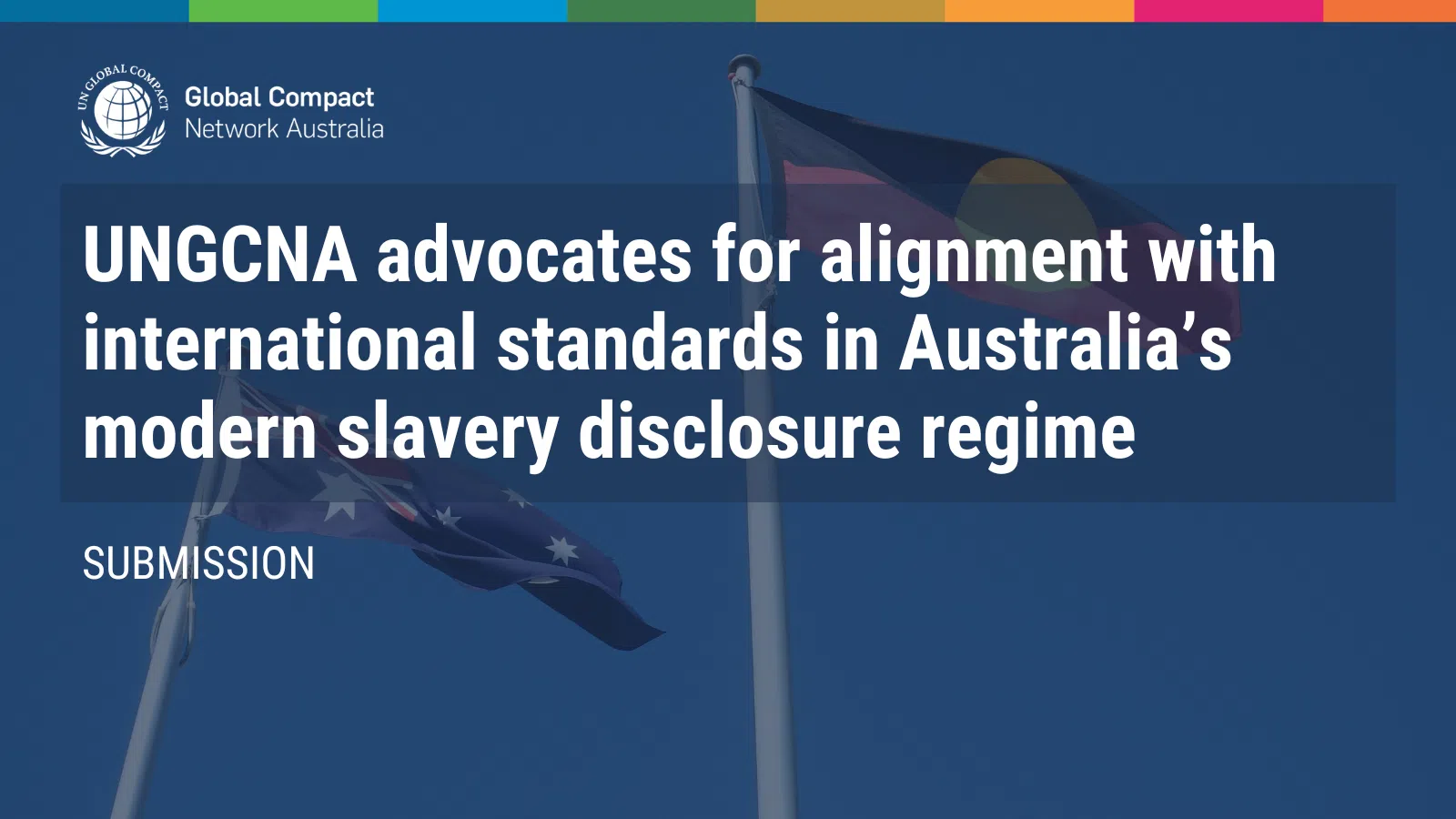
Business & Human Rights, News
Advancing the national agenda on business and human rights
UN Global Compact Network Australia | August 4, 2014
Australian businesses, government, NGOs, investors and other key stakeholders convene at Australia’s first national event to advance dialogue on managing business-related human rights impacts
The Global Compact Network Australia and Australian Human Rights Commission convened the Australian Dialogue on Business and Human Rights to identify and explore key human rights-related challenges and opportunities for Australian businesses, learn from leading practices and past failures, and explore how business and other stakeholders including government, NGOs and investors can work together to develop collaborative responses.
Around 100 representatives of a number of Australia’s biggest companies, NGOs, government departments, investors and academia participated in the Dialogue. The United Nations Working Group on Business and Human Rights, mandated by the United Nations to disseminate and implement leading guidelines in this area, also attended and supported the event.
“There is incredible energy and commitment around this issue in the Australian business community, and the Dialogue provided an opportunity to highlight how a number of Australian companies are leading in this space”, said Alice Cope, Executive Manager, Global Compact Network Australia.
“While the language of human rights is not always familiar to business, the implications for business and their stakeholders in not understanding this issue are real and significant. No sector or industry is divorced from human rights issues whether operating internationally or just within Australia. As stakeholder scrutiny and expectations grow – whether that be customers, investors, employees or others – the Global Compact Network Australia looks forward to continuing to support business in engaging and taking action in this space, and to leading the continuing national dialogue on business and human rights.”
“I was greatly impressed by the commitment to human rights from Australian businesses and the extent to which human rights are being integrated in their operations. Participants agreed that there is real value for a company that embeds human rights considerations into its core business practices, and significant costs when they are ignored. There was also consensus on the need to forge ongoing partnerships across stakeholder groups” said Australian Human Rights Commission President, Professor Gillian Triggs.
“We are excited to work with all sectors in further integrating human rights within the corporate landscape.”
Australian businesses increasingly understand their human rights-related risks and responsibilities both domestically and abroad, and also the opportunities that positive engagement with human rights can bring. Mining companies with big physical footprints may face issues around land access and security providers while IT companies may face issues around the right to privacy and freedom of expression. For manufacturing or retail companies labour rights in their supply chains may be their focus, and those in banking and finance may face questions in relation to third parties or projects they finance.
The Dialogue was sponsored by Rio Tinto, KPMG and La Trobe Business School.
Media Release
Agenda
Summary and Outcomes Document
